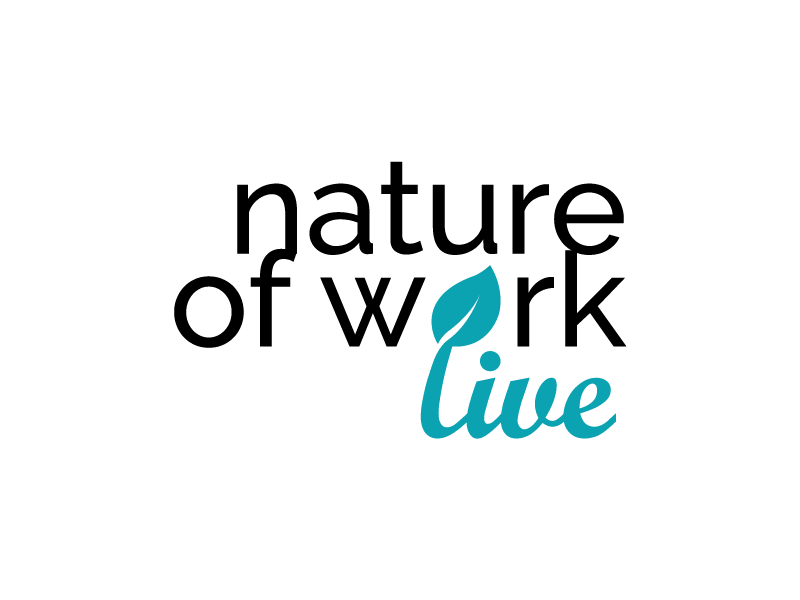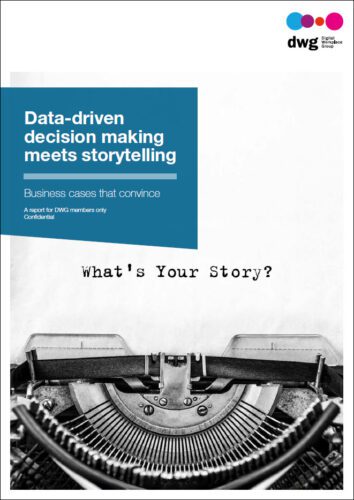Remote working, organizational purpose and learning from nature: an interview with Dr Nicola Millard
One of the sessions I’m most looking forward to in Nature of Work Live is ‘Taming the Zedonk: Avoiding horrible hybrids’ by Dr Nicola Millard, Principal Innovation Partner at BT. Dr Millard is an excellent presenter, delivering insights into workplace trends in a warm and often very funny way, with the content frequently based on her own research or that of her BT colleagues. She can make nuanced and highly complex subjects seem both accessible and entertaining; if a series of Royal Institution Christmas Lectures for digital teams were ever to be introduced, then Millard would definitely be my suggestion for presenter!
I was lucky enough to interview Dr Millard when carrying out the original research for the Nature of Work book. The interview took place in the summer of 2020, so inevitably our conversation was framed by the COVID-19 pandemic and the collective experience of remote working. We explored many of the issues and changes that were taking place. Her observations are still highly relevant today as we start to embed hybrid working across many organizations and stumble through the finer details of what that means. Here are some highlights from the original interview.
Remote working and people
We started our conversation by talking about the challenges surrounding remote working. Millard believes these are principally people-related rather than about the technology being used.
“We’ve been talking about the virtual office, the digital workplace and digital collaboration for a long time. At BT we’ve been remote working for many years and now do it very well, but at other places there has been more resistance. I’ve always said that the barriers have been mostly cultural because the technologies are patently already in place.”
Inevitably the experience of transitioning to remote working during lockdown has eroded some of this resistance as employees, organizations and industries find they can operate more successfully than envisaged.
“I think every industry has had a bullet train driven through it and been forced to reimagine what it does in a virtual way. I think some of the cultural barriers have come down. Healthcare has been one of the sectors where attitudes have completely changed. Before the pandemic we were seeing a lot of pushback around remote diagnostics and ‘teleheath’, with clinicians saying the patient has to be in the same room. That thinking has changed, primarily for safety reasons, but also now due to resourcing aspects.”
Interestingly, Millard herself went through a change in her own attitude to home working. Given that both she and her research at BT have been exploring and advocating for the use of digital collaboration technologies for many years, I was quite surprised that she initially found the experience of working from home personally quite challenging.
“I started off absolutely hating home working. Years ago, I could have become a remote worker with BT but I never did. I really struggled initially, and I reached out to some of my BT colleagues who’ve been working for years and said ‘How on Earth do you do this?’. They were incredibly kind and shared a lot of hints and tips that we actually ended up publishing on our website. I’ve taken a lot of their advice on board and now I actually love being a homeworker, which is massive change for me. That’s because my habits have changed and I’ve started to realize I was a primarily a mobile worker.”
Taking a people-first approach
Despite some erosion of the initial opposition to remote working, it is important not to forget that there are groups and cultures that are less likely to embrace remote working for one reason or another. Understanding these differencescan ensure leaders take a people-first approach. Millard cites BT’s research that shows we cannot take a one-size-fits-all approach to remote and hybrid working.
“One of the things exposed by the pandemic is that there is a gulf between people who have houses and places to work in a house, and those that don’t. We’ve been talking to graduates in shared houses or bedsits and they’re having to work off an ironing board, which is not exactly optimal – and they’re often also learning the job as well.”
There can also be dramatic variations across different countries in the ability to work remotely, particularly from home.
“We spoke to people in India, Hong Kong and other countries, where remote working is harder. Some areas don’t have air-conditioning, or the electricity supply isn’t necessarily particularly great. Housing is also a factor – flats in Hong Kong are notoriously small, for instance. Broadband access to connectivity can be very variable too.”
Millard also believes we mustn’t forget the importance of meeting in person and should be sensitive to cultural attitudes towards this.
“We will always need face-to-face interaction because there’s something very unique about it. In some senses, it’s almost a luxury. There also are some real subtleties around how different cultures view relationships, with high-touch and low-touch cultures. So, there may be a need to do face-to-face simply because culturally it’s more acceptable.”
The environment and a new sense of purpose
One of the 12 elements covered in the Nature of Work book is ‘purpose’. The pandemic has not only meant we focus on how we work, but also why we work. Millard believes that COVID-19 has provided an opportunity to rethink the purpose around work, although there needs to be some granularity and specificity around it for employees to engage, particular in larger companies.
“A crisis tends to magnify certain aspects of purpose. You can see if you have significance in the world when there’s a crisis, and that is clarified in a purpose. But how do you craft a definite statement around purpose in a very large organization? In larger organizations, that purpose piece can be lost, and people don’t necessarily understand how they contribute or see the influence they have. Sometimes, you need to take that right down to a project team and your projects to define the purpose. BT has been focusing on this, as well as some of the clients I’ve been working with.”
A clear area where organizations are making a difference and driving some sense of purpose is to make a positive contribution to climate change. Here, Millard believes the introduction of more remote working will make a difference.
“If we now have an opportunity to change the way we work, can we make that low carbon as well? Do we need to physically travel and be in the same place, or can we do things just as well over a digital platform? The answer for a fair number of cases is probably yes.”
For BT, reducing carbon emissions has been a priority, particularly in relation to the company’s office portfolio.
“At BT we’ve been focusing on reducing electricity consumption. Firstly, how do we reduce this or indeed generate our own? So, that’s been a focus around sourcing greener energy, certainly with respect to our offices. BT is also currently renewing a lot of its offices. Our new headquarters is being built as we speak. It will actually incorporate technologies that reduce the carbon footprint of our buildings as well, because that can be a fairly significant chunk of our carbon consumption.”
Learning from nature and the power of stories
One of the central ideas behind Nature of Work is that we can learn from nature, providing inspiration and ideas to develop a ‘new story of work’. Learning from nature is an idea that resonates with Millard.

“It’s fascinating how we can learn from nature. Biomimicry is very interesting. Here at BT, we have looked at self-healing networks and ants, and the ability to self-organize when something breaks. There’s also been lots around bees and swarm behaviour and the way bees communicate through the ‘waggle dance’. How did they start to coordinate and signal with each other?”
Taking lessons from the natural world to inform the current evolution of work is also an example of the power of storytelling. Millard thinks it’s important that we recognize the potential to draw a narrative from nature, science and data.
“Telling stories is the way we’ve communicated for thousands of years. The real problem with science at the moment is that we’re not creating storyteller scientists. We need people who can understand data and systems, but who also have the creativity and storytelling skills to be able to explain what the data’s telling us in very simple terms, to people that maybe don’t understand data so well.”
I suggest that that this is essentially what Millard is doing when she communicates with businesses and clients, making sense of research and data, through stories, anecdotes and humour.
“I dislike being labelled as just a scientist. I love science and data, but I also love literature and theatre. When you put that all together, it can be a really compelling offering.”
Our thanks to Dr Nicola Millard for allowing us to publish extracts of our original interview. Don’t miss her session at the Nature of Work Live event!
Join us on November 2-4, 2021 for Nature of Work Live, an inspirational 3-day virtual experience, where a growing community of change-makers and ‘make-changers’ will come together to explore, understand and bring to life a new story of work for a living age.
Learn more and register for FREE by visiting natureofwork.live

Categorised in: → Remote working

